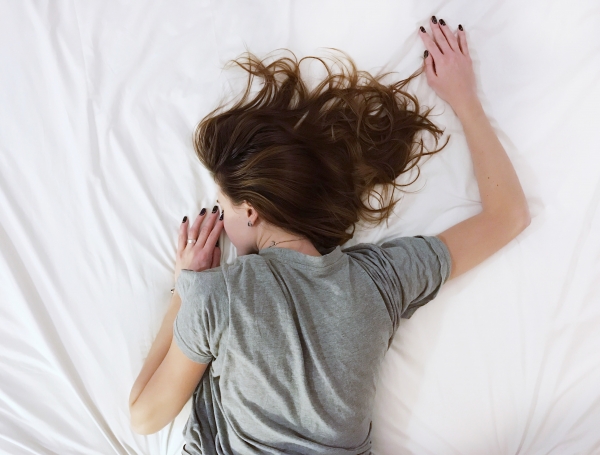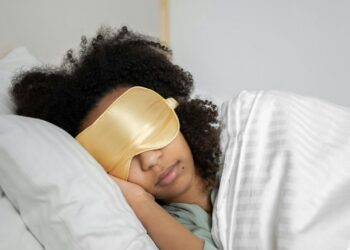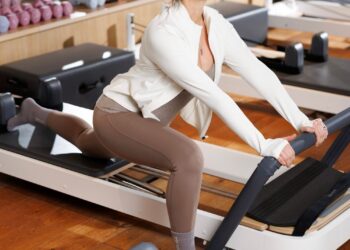The shift towards an ‘always on’ culture means that our sleep is suffering, which can have a detrimental effect on our health and wellbeing. According to the experts, these healthy habits can improve sleep
We all know about the unhealthy habits when it comes to sleep – too much coffee, too much screen time and taking the phone to bed are all rituals that can negatively impact our sleep. But bad quality sleep has many knock-on effects – not only can it make us irritable and unproductive, it impacts our overall health.
“Whether it’s at work or with our families and kids, we have to be able to make decisions quickly and focus and if we don’t sleep well that gets affected,” explained Miriam Kerins Hussey, speaking at the launch of the Beo Wellness Sleep range into Kilkenny stores. “If we can look at why sleep is important, we can begin to prioritise it more.”
Wellness expert Miriam explained that when you fall asleep, your immune system wakes up, citing health as a big reason why sleep should be at the top of our wellbeing checklists. She also cited beauty – sleep allows our cells to rejuvenate which effects everything, from skin to hair; it helps our hearts, reduces inflammation and helps our metabolism stay on track – as Miriam says, if you’re tired you automatically want the quickest form of an energy boost, caffeine and glucose, which has us reaching for the sugary snacks with our afternoon coffee.
“We have to relearn to sleep,” says sleep expert Tom Coleman, “all of this stuff is new – living inside, technology – we have to train ourselves. Something different will work for everyone, body scan, mediation , eating well – find what works for you and practise it,” he enthused speaking at the launch of Beo – which was founded by Aoibhín Garrihy and Sharon Connellan.
So, what rituals can we introduce in our everyday lives, that will help us to fall asleep easier? “We’re very good at creating habits for our kids around sleep – pyjamas, brush teeth, story time – we all have these rituals that allow them to wind down, but when it comes to ourselves we’re all running around,” says Tom.
6 simple rituals for a good night’s sleep:
- Start in the morning: Begin your journey to a restful night’s sleep first thing in the morning, by getting outside into full spectrum bright light. “That triggers the circadian rhythm and our body knows we’re awake, which helps it know when it’s time for sleep,” says Tom.
- Coffee is fine, but watch when you drink it: It’s not about cutting it out, life is for living after all – if you enjoy coffee, have it as early in the day as you can. “Caffeine will tell your adrenal glands to make adrenaline which will keep you in fight or flight mode,” says Miriam.
- Put down the phone: It might be easier said than done, but even half an hour without scrolling on our phones before bedtime will do us the world of good. If you use it as an alarm, get an old school alarm and leave the phone in another room or drawer. Use the time to brush your teeth, put on skincare, read a few pages of a book – you’d be surprised how quickly the 30 minutes goes by but it will do your head a world of good. “The blue LED light of a phone screen is twice as powerful as sunlight at suppressing melatonin in the brain, which essentially tells the brain to wake up,” says Tom.
- Turn the temperature down and take a hot bath: In order to fall asleep our body temperature needs to drop by two degrees, so turn off the central heating (use a blanket for extra warmth if needed). A hot bath or shower will also help our core body temperature to cool down, plus it’s a nice way to get off our screens and calm down our systems before bed.
- Create a sleep-friendly environment: Dim lights, cosy clothing, an inviting bed, soft music – from the moment you get home from work you can use tools like this to indicate to your brain that sleep is coming soon. Just like we use indicators to tell children when it’s time to wind down, creating little rituals like this will also help you get into a healthy sleep routine.
- Take naps: According to Tom, culturally we are prone to think sleeping in late or napping during the day is bad or ‘lazy’, but with unpredictable lives and sleep patterns , he says to get sleep when and where you can, by taking a short nap of 20 or 30 minutes, or a full sleep cycle of 90 minutes. “We applaud colleagues going to the gym on their lunch break, but if you told them you were off for a nap, you’d get strange looks!” he laughs. “We should be going to bed and waking up at the same time each day but that doesn’t happen so sleep when we get the chance, naps are great way to bank sleep.”








